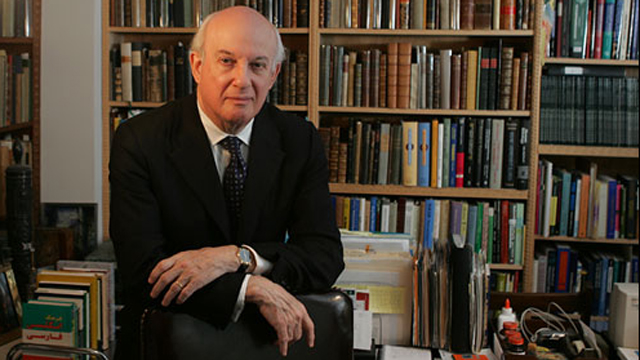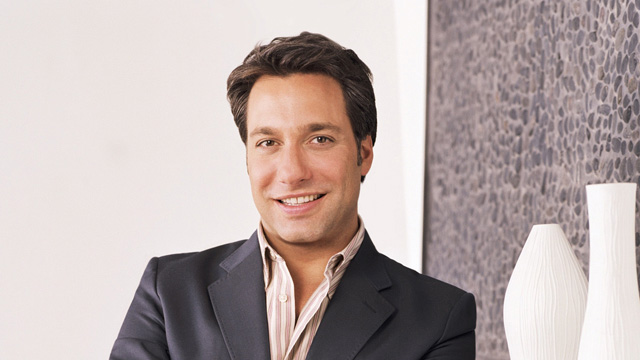Culture & Religion
All Stories
Save yourself the time and effort: parents have much less influence over their children’s personality than we think, says controversial psychologist Judith Rich Harris.
Salt and Salander flip conventional notions of gender roles. Are they the new models of millennial femininity while sacrificing being “real” women, asks Luisita Lopez Torregrosa.
Out-of-control Jersey Shore cast member Snooki reveals the ever-shrinking gap in America between who we are and how we broadcast ourselves to the world, Max Fisher considers.
Karl Walling, the strategy professor falsely accused online of advocating rape in a lecture, considers the cost of protecting academics from such outrages.
Michael Stone is an expert on evil. A forensic psychiatrist and professor at Columbia, Stone has cataloged and classified evil acts into a 22-point scale for his show on the […]
Why did modernism skip England? One academic asks why a people so close to the Second World War cling to their outmoded literary traditions while the world around them has progressed.
Public intellectual and Postwar European historian Tony Judt should be remembered for his consummate political stance: an ardent defense of the welfare state until his last moments.
Is the fading dominant male stereotype accurately captured by this summer’s films, which exhibit more dynamic gender roles? Are traditional men becoming less relevant to modern families?
“Beauty may only be skin deep, but that’s plenty deep enough to cost you a job, a promotion, or the training to get one.” Is discrimination based on looks the next civil rights battle?
“Psychologists have spent decades searching for personality traits that exist independently of circumstance, but what if personality can’t be separated from context?”
“The difference between major and indie labels now has less to do with aesthetics than with the way bands conceive of their careers.” Smaller labels can be just as profitable as big ones.
Does the ability to exercise self-control determine your class? Research suggests that children with higher socioeconomic status demonstrate more self-control.
Children’s author Roald Dahl was a socialite, fighter pilot, and spy for the British government after World War II. A new biography details the unassuming author’s foreign conquests.
“One of the main developments in recent American literature has got to be a newly self-conscious traditionalism.” A report on this decade’s fiction finds a rebirth of classical values.
David Mamet’s new book ‘Theatre’ confirms the playwright’s exeunt from ‘brain-dead liberalism’, a move to the right which he originally announced in the Village Voice.
Photographic artist Edward Burtynsky, who is particularly known for his sweeping images of desolate industrial landscapes and their implications for the ruin of the natural world, recognizes that there is […]
Reality TV concerns its viewers with artificial status, confuses celebrity for infamy, and has a tendency toward violence and moral depravity. Welcome to the circus, says Christine Rosen.
Interior design star Thom Filicia just stopped by the Big Think offices to tell us a thing or two about good taste and what it takes to be a tastemaker. […]
A series of online tests known as Implicit Association Tests measure subconscious bias in areas of race, gender, age, ethnicity, religion, or sexual orientation. Follow the link to try.
Our insistence that luxury goods be genuine is unrelated to how the product functions, say psychologists. We demand authenticity because of an emotional attachment to a brand.
Defining the current generation of twenty and thirty year olds is a controversial task for psychological researchers. Some say Gen Y is selfish and insensitive while others disagree.
Jayne Merkel, architectural historian and critic, locates the moment in American architectural history when less ceased to be more and inspiration was found in yesterday’s buildings.
“According to a controversial new theory, our emotions have evolved as tools to manipulate others into cooperating with us.” The New Scientist says emotions are the currency of relationships.
“New research from France finds restaurant patrons exposed to music with pro-social lyrics are more likely to leave tips.” Miller-McCune on another delicious French sociology study.
Nouns that have changed to verbs, such as ‘login’, ‘text’, and ‘unlike’ have some grammarians in a fuss, but one lexicographer celebrates the changes as evidence of language’s dynamism.
Libyan strongman Muammar Gadaffi has it in for peace-loving Switzerland. He says he’d destroy the country if he had atomic weapons. But since he doesn’t have them, he advocates wiping […]
Playing fugues by Johann Sebastian Bach on the piano is not unlike playing “Mario Cart” on the Nintendo 64, says Hilda Huang, who at 14 years old is Big Think’s […]
“It’s time to put beautifully-written nonfiction books into our English classrooms.” Ta-Nehisi Coates says reading well-written factual accounts adds nuance to an education.
Timothy Noah at Slate on, “What your enjoyment of sleep-away camp, or lack of same, says about your character.” How much did these hideaways determine our adult psychology?






